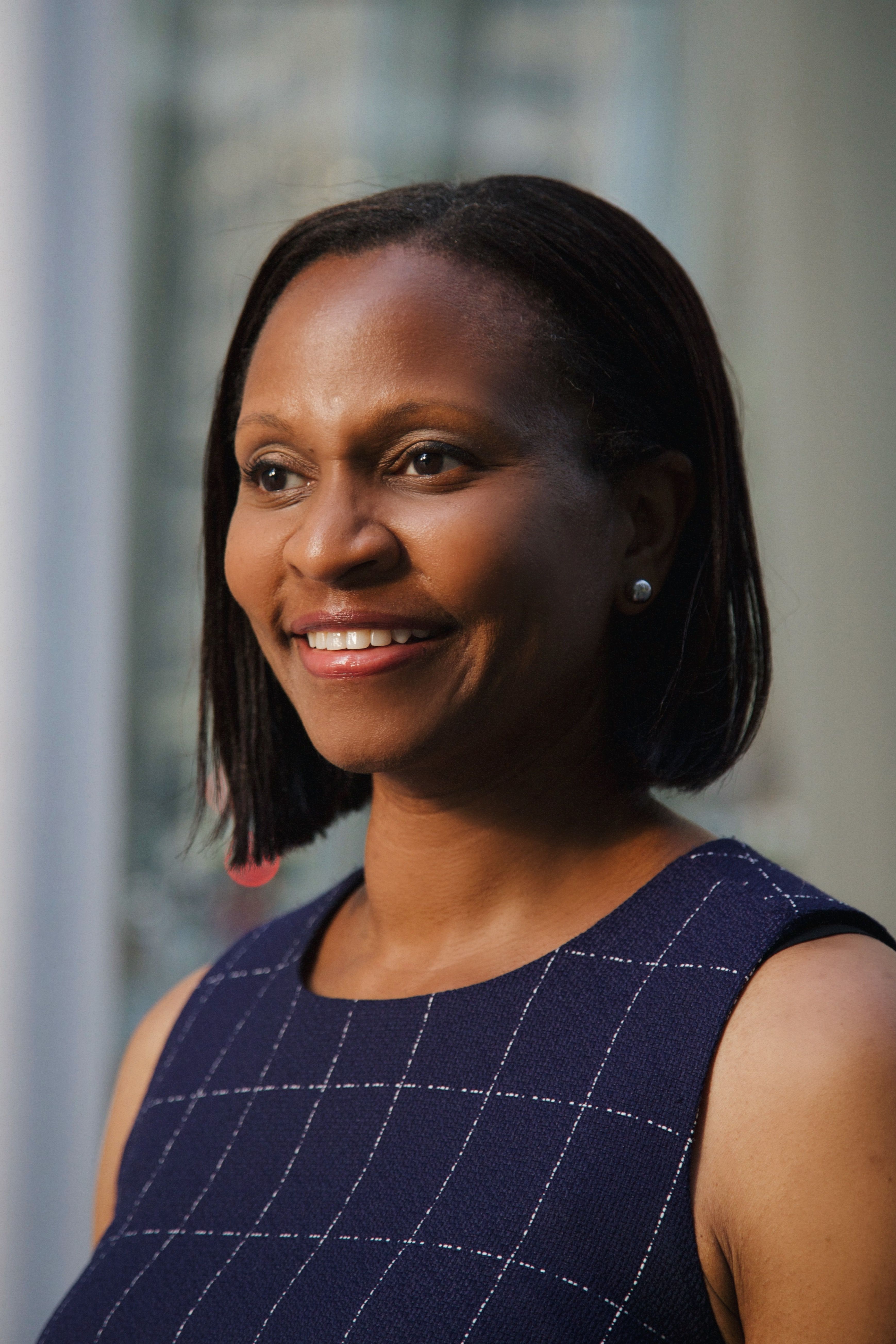
Sonya Rocvil
Bedrock Real Estate Investors
As the Founder and Principal of Bedrock Real Estate Investors, Sonya Rocvil specializes in acquiring multifamily apartment buildings throughout the Southeast. While she prides herself on her successes as an investment manager, she is also determined to provide her residents with the quality workforce housing that she considers to be the bedrock upon which a healthy community and society is built.
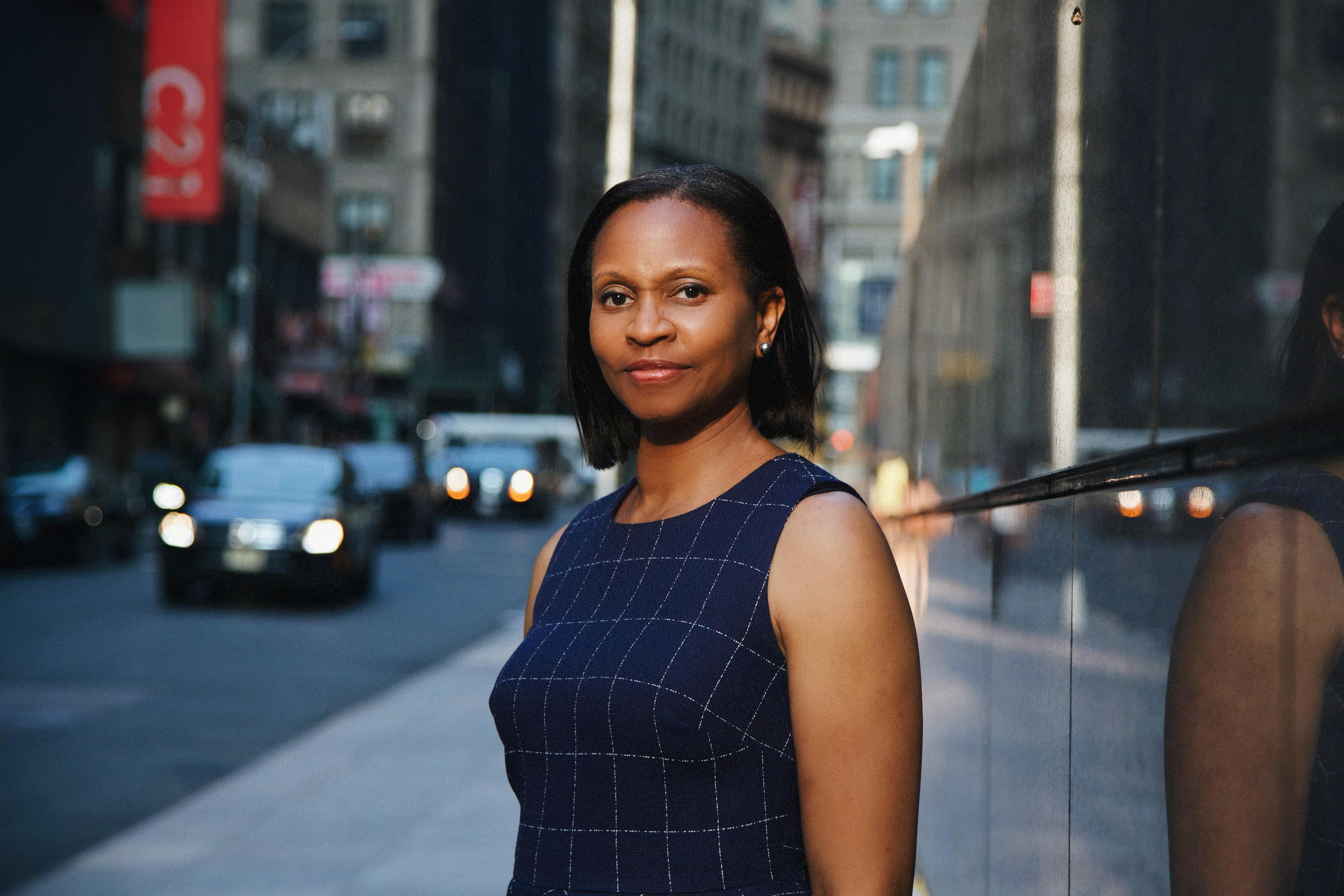
By Eva Sergeeva for Commonplace
Can you briefly introduce yourself, your background, and the work you do?
My name is Sonya Rocvil and I am the Founder and Principal of Bedrock Real Estate Investors. I am based here in New York, but our investment focus has been to acquire multifamily apartment buildings in the Southeast in places like Atlanta and Augusta, Georgia and most recently in Birmingham, Alabama. We identify existing properties in communities or areas that we think are growing and look for opportunities to add value to the properties for the residents and for our investors.
I grew up in Queens, but my parents are originally from Jamaica, and I spent pretty much my entire childhood, kindergarten through high school, in that community. After graduating from high school, I went to Rutgers University for my undergraduate degree for some distance from home and a little bit of independence. Then, after college, I became an auditor and a Certified Public Accountant. I spent the majority of my career in corporate at American Express and I eventually got my MBA from Baruch College while working there.
Can you give an overview of your career and the path you took to get to where you are today?
My background professionally is in accounting and real estate is actually a second career for me. When I was trying to figure out my major in college, a mentor I had at church recommended accounting because it was the “language of business” and if I understood it, then I could work anywhere. I really took that to heart and when I graduated I became an auditor for a number of years. However, after I got my CPA license, I realized I didn’t want to be a partner at an accounting firm and left for a role at American Express.
I had a fantastic career at AMEX; I started as an Analyst and ultimately left as a Director. I learned a lot and met so many great people who supported my career growth, but things change within a company. There were several realignments of business groups and my entire division and I were all laid off.
However, that gave me a chance to take a step back, which worked out well because before that happened, I was already considering where I saw myself in the company next and I was starting to realize that I was having trouble seeing myself in other groups at AMEX. At the same time, I was learning a lot about real estate and it was something that I was really fascinated by. I had started reading books and joined some real estate investment groups when the layoff happened, so it presented an opportunity for me to figure out how I could pursue this and that's exactly what I did.

By Eva Sergeeva for Commonplace
It sounds like you were relatively inexperienced when you first got into commercial real estate. Were you always interested in real estate? Did you have any real estate experience before that, even just with personal investments?
No, I didn't do any personal investment beforehand. I was one of those people who read Rich Dad, Poor Dad – all the different versions – and I really got inspired by that book. I took a couple of classes here and there, mostly one day seminars about investing in real estate, and I was fortunate to be able to get involved with programs like Project REAP, which supports diversity in commercial real estate. Those were all really great resources and I was doing a lot of reading on my own on the train, but still I wasn’t transacting. The closest thing was when I bought my home, but I still wasn't doing anything on the investment side.
However, after I left AMEX, I joined a real estate investment group called REIA NYC. At first it was overwhelming – I still remember just trying to keep up with conversations about all these potential investment strategies. But I kept at it and over time I learned a lot from different speakers at REIA. Then, one day somebody came in to talk about multifamily properties and their multifamily investment group, which really resonated with me because I grew up in an apartment building and had fond memories of growing up in that type of community. I found it to be more intuitive and, from an investment perspective, the economy of scale in multifamily just made more sense to me. I couldn’t really wrap my head around single-family homes, for example, because it wasn’t clear how cash flow would work and how I could manage the risks of depending on a single tenant.
From there I met joint venture partners in that group and that’s how I got started jumping straight into larger multifamily properties.
Can you give me an overview of your track record to date? What position do you take and how much equity are you comfortable with deploying at a time?
We’re at six projects, with four of those being full cycle projects from acquisition through to disposition. The remaining two are acquisitions that we’re currently managing.
On these deals, I'm the GP and one of the sponsors of the project, though when we invest we're also on the LP side. They range in size from 40 to up to 174 units, but now as we’re looking to continue to grow, I'm really wanting to focus on properties with 100 or more units to get better economies of scale. I’m not saying I wouldn't look at anything below 100 units – our two deals in Birmingham have fewer than 100 units each – but, especially if I’m considering a new market, I want to keep to that larger size because it helps with accessing the best resources and property management, which are essential to our business.
In the past, the total equity for our deals, except for the larger 174-unit building, was in the $2 to $3 million dollar range. Going forward, we're looking at equity that will probably be at least $5 million to potentially around $15 to $20 million.
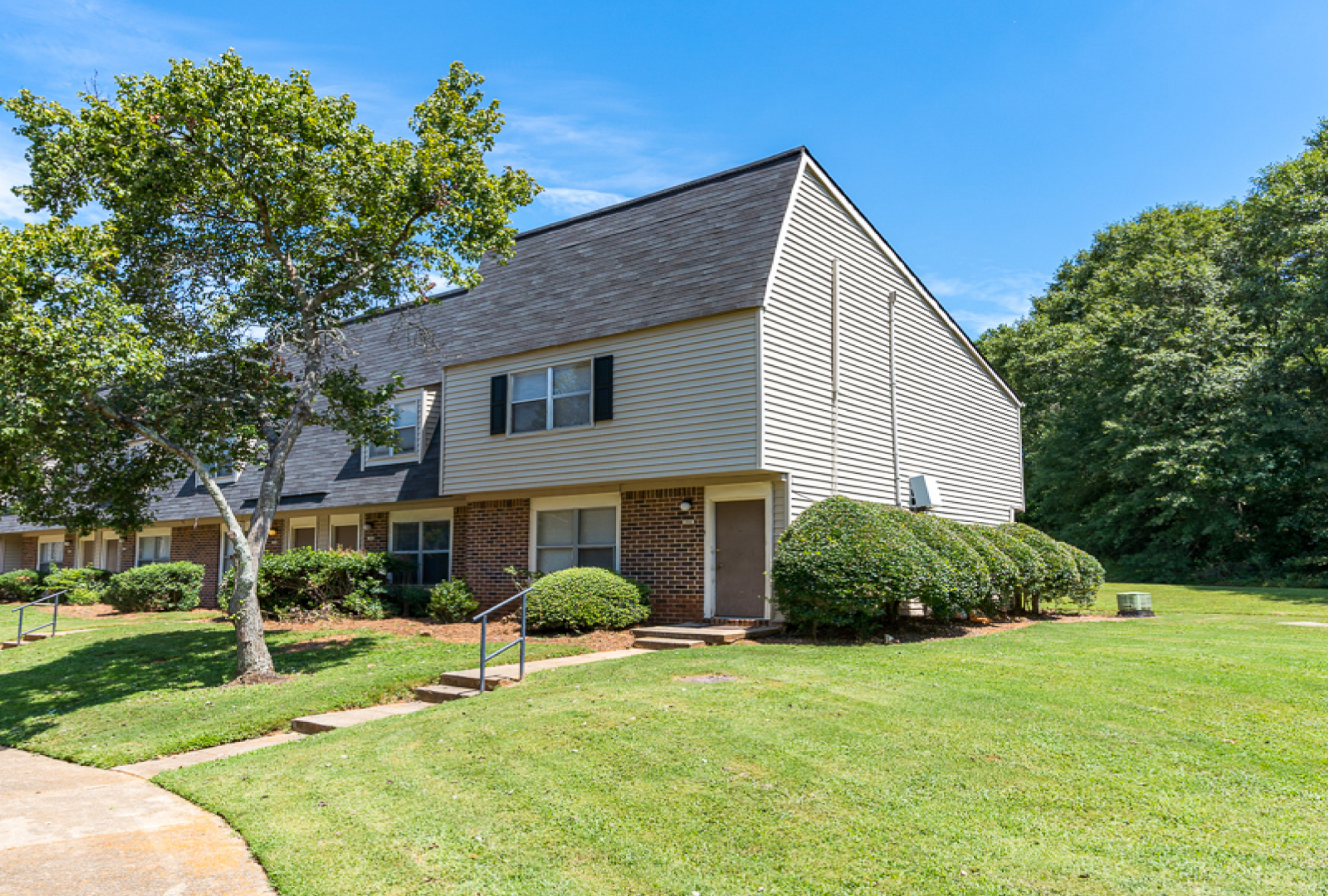
One of Bedrock's communities in Atlanta, GA
Courtesy of Bedrock RE Investors
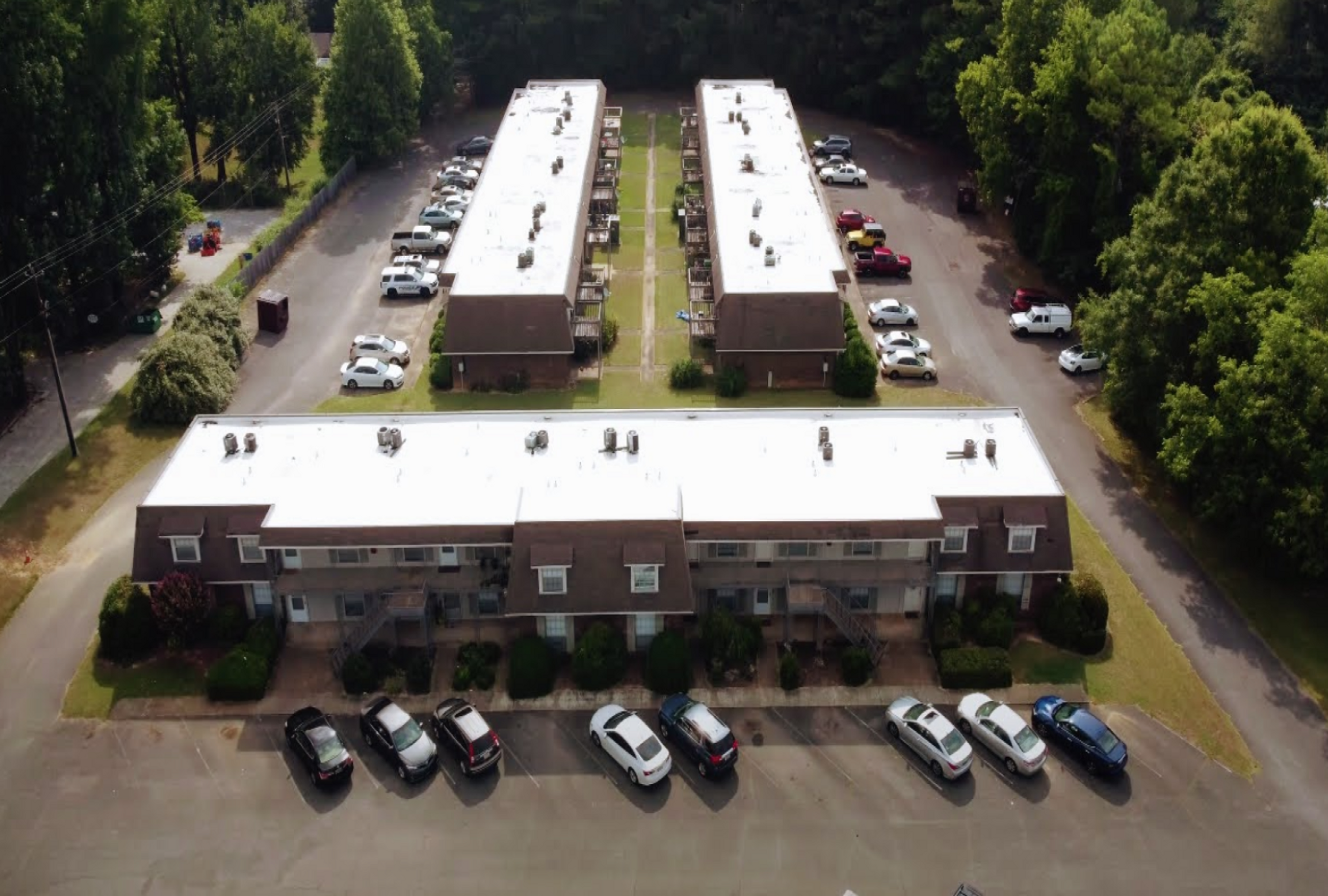
An aerial view of a Bedrock project in Birmingham, AL
What are you looking for when evaluating a deal and what is your approach once you’ve found the right opportunity?
Without sounding too cliche, location is definitely important. So, one of the first things I look at is the MSA* because there's just so much data that you can get on trends and performance at that level. Then, delving deeper, I look for properties that are ideally in that 100 unit range in places where we think there's still an opportunity to add value to the residents and the community.
That can mean a few things. Sometimes we’ll find properties in these different areas where it’s clear that they're not being kept in a way that would make people feel proud to live there. We see that as an opportunity to come in and make some changes to the operations that can help to add value to the property. Though a lot of times we also look to make improvements to the exterior and interiors as well. Other times, we’ll find properties where rents are below average and we’ll get those rents to a place where we can afford to update and maintain the property.
We also look for properties in areas where we feel that there's an opportunity to grow with the community and provide a good experience for the people living there.
* In the United States, a metropolitan statistical area (MSA) is a geographical region with a relatively high population density at its core and close economic ties throughout the region. Such regions are not legally incorporated as a city or town would be and are not legal administrative divisions like counties or separate entities such as states.
"It’s really more of a balanced approach because we're not cutting costs and squeezing every single last dollar out of the property – that actually destroys value and makes life worse for the tenants. Ultimately, when we sell it, we want our work to provide value to the next buyer, as well as our investors, and an important part of that is having a community that’s happy to be there."
Within your portfolio, is there a project in particular that you would highlight that you really believe exemplifies your approach to investment?
Sure. I’ll talk about our first project, which was in Atlanta. It was a 48-unit property located in an area with a very high refugee population, so these were people who were legally allowed to be here in the U.S. and were escaping something from their native country. And we found that there was such a great community in that micro-market because a lot of people chose to live there to be near other people from their country or other people who were in similar situations as them. That created a very supportive community that provided access to many services, including job training and English classes.
When we came in, we did some minor updates to the property and we put in a great management team that worked well with the residents. For example, people had customs from their home country that they couldn't necessarily do within an apartment building, but our management team was understanding and able to help navigate some of that without creating any issues. It was really great to be able to be in such a supportive ecosystem and to have contributed to that.
That all translated to excellent returns for our investors as well because the residents in the community were happy to work and pay rent because they were glad to be here and felt they were really moving forward in their lives. It’s everyone’s dream to work with great residents like this and the consistency of the resident base, along with the strength of that community, really made the whole project a wonderful experience and one of the best deals we’ve had on multiple levels.
Is your focus exclusively on Atlanta and the Southeast? How did you end up with that geographic focus while being based in New York? Did you have personal connections there or anything else that made it easier?
It was actually an entirely new market for me!
When I first started thinking about apartment buildings, it was clear that New York real estate was out of reach. It didn't make financial sense and there are a lot of barriers to entry for a newer person who's just starting out. So I did a lot of homework, looking for states where there was population growth, strong jobs and job growth, declining unemployment rates, and public policies that were friendly to businesses and landlords. And the Southeast is where all of those came together.
That all led to our first investment in Atlanta because it made sense based on what I just mentioned and it was also not too difficult for me to get to for a day trip, which I've done many times now – those 6 AM flights with a 9 PM flight back home the same day. It would be much more challenging for me if I was in a market that required multiple flight transfers or was on the other side of the country, especially now that I have small children. So that's why I've stayed focused on the East Coast.
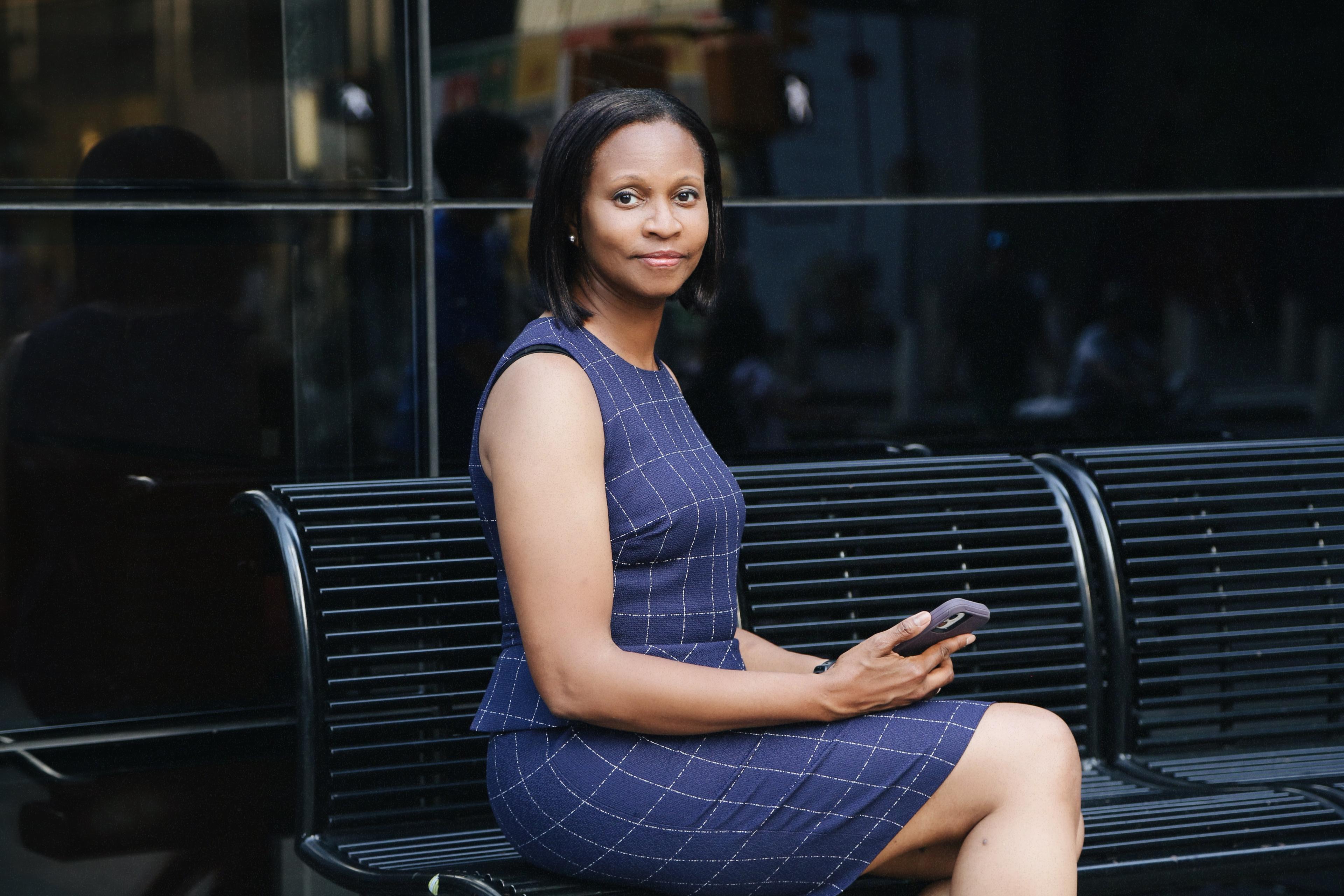
By Eva Sergeeva for Commonplace
Do you face any challenges raising investment capital to execute on your business strategy? If so, can you elaborate?
I've been very fortunate that with my career history, I've been able to meet enough people to be able to do all of our deals so far with just friends and family capital and it has been a great source for us to date.
However, it can also be tricky because we’re not a fund, so our investors are not committing capital for a set amount of time. Instead, it’s on a deal-by-deal basis, which leads to situations where, say, someone who thought they could move forward two months ago realizes suddenly that they can’t – that happens all the time. And because these are personal investors, you also can’t keep going to the same people if you have multiple deals happening simultaneously. That means you have to keep growing your base, which creates a lot of administrative work because you have more people and more touch points. It’s good training and experience in a way, because you get all these thoughts and questions sort of thrown at you, but it becomes harder to do as the equity checks and requirements become larger; it’s one thing when you’re looking for $1 or $2 million, but a whole different story when you’re looking for $9 or $10 million.
As we look at scaling, finding larger deals, and continuing to grow our platform, I’ll eventually need to have access to capital that I have not had access to or haven't tapped into before because our deals were too small.
"That puts us in a Catch-22: we haven't done a deal that size before, so it’ll be hard to raise capital for our first one of that size, but also we can’t do one of that size until we’ve raised the capital. And so, one of the biggest barriers we have is just getting people comfortable with our ability to execute on the business strategy entering into the private equity, institutional, or family office spaces for the first time."
And what about on the debt side? Have you encountered similar challenges there?
On the debt side, our preferred source of financing is agency debt – specifically, Fannie Mae or Freddie Mac loans for the deals we have – because it’s fixed rate and has a few other advantages. However, to access it you need a balance sheet that can support the size of the deal; in other words, the lenders are looking for the sponsor team to have net assets equivalent to the size of the loan that they're providing. That introduces another scaling problem: if you're going for a larger deal, you have to think about your whole sponsor team and who you're including to be able to meet those balance sheet requirements, as well as the equity or liquidity requirements. All of those things make it challenging.
And on top of that, there are already a lot of challenges with debt right now just for macroeconomic reasons. Interest rates are much higher now and the amount of debt you can get for a deal has been reduced. 24 months ago you’d be able to finance something with around 70% or more leverage, but now you're probably at around 60% to 65% or even less than that.
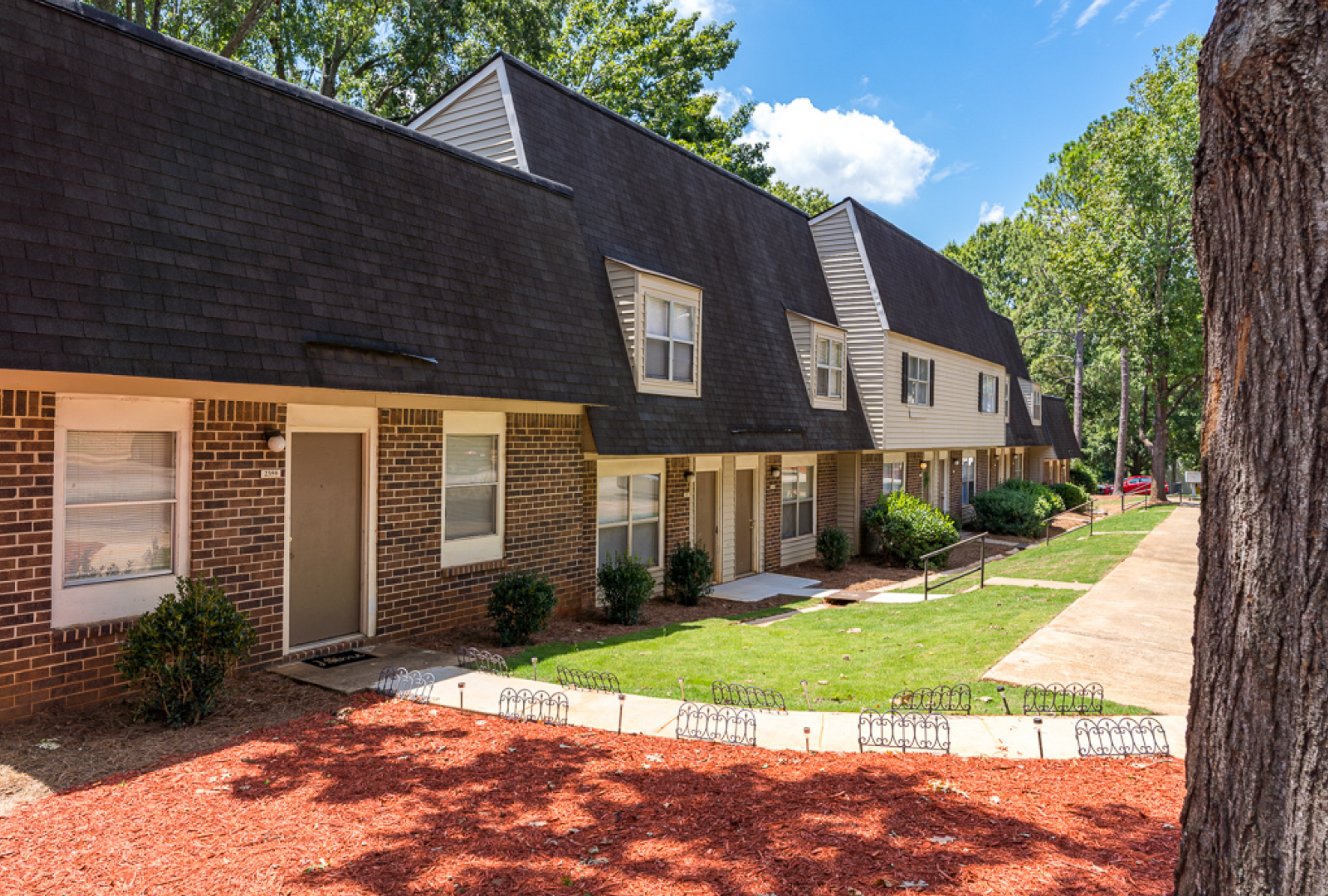
Bedrock is proud to provide residents with housing that is affordable, clean, and safe
Courtesy of Bedrock RE Investors
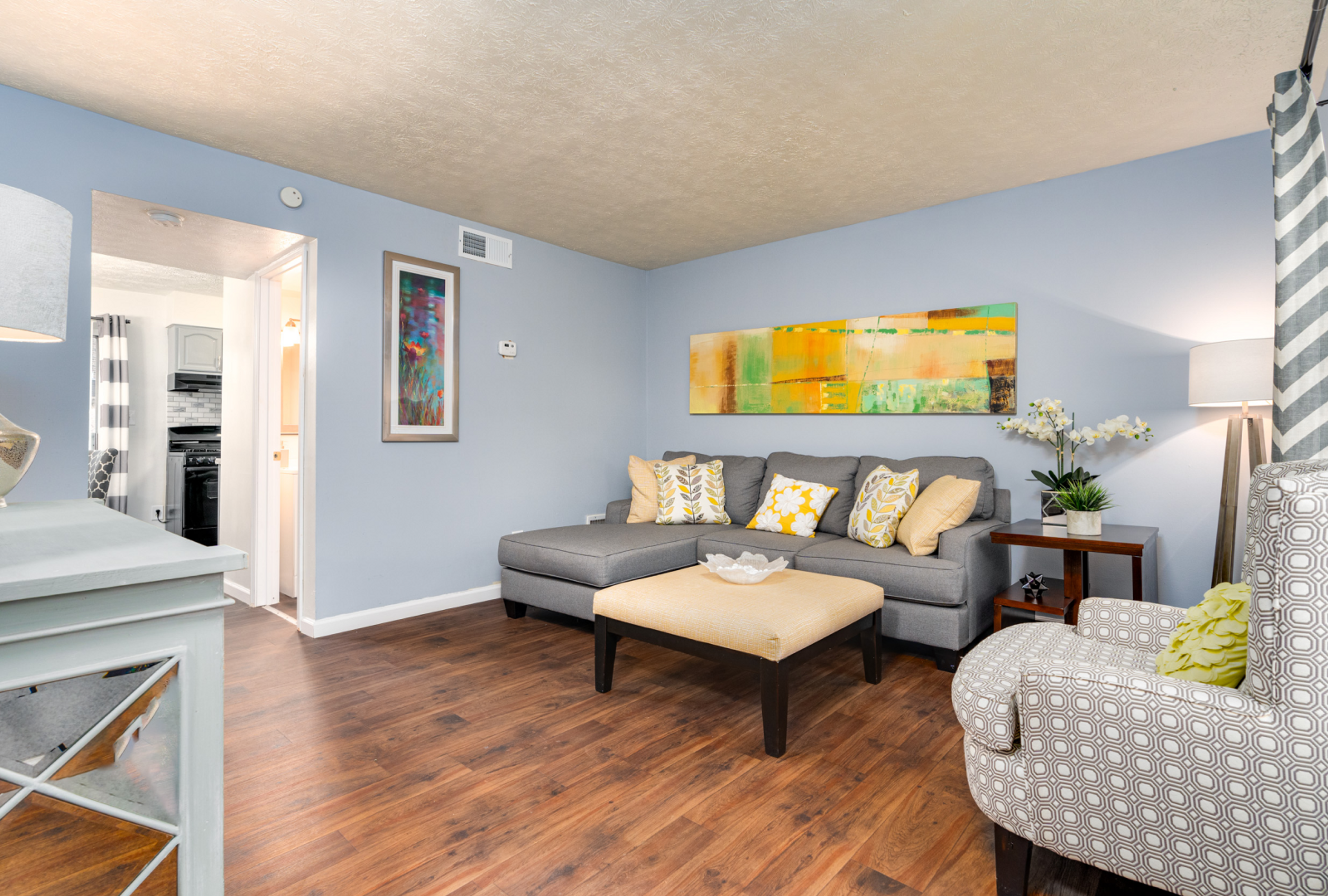
What drives you and motivates you to do what you do?
I didn't have children at the time when I started out, but one of the things being laid off teaches you is that you really can't pass down your degrees or your professional licenses to your family. You earn them during your time here and they’re valuable, but you can't pass those down. You can, however, pass down knowledge and you can pass down assets.
When I think about the foundation that my family has built for me, immigrating here with nothing and working hard to allow us to live comfortably, it's kind of like I’m in a relay race and I’m passing the baton. And my hope is that the next generation of my family won’t have to start that race from the beginning again because we've already gone quite a distance.
So in doing this work, I want to be able to provide options for building generational wealth to my family, as well as to the families of the people that work with and invest in us. That can mean the assets themselves, but it can also just be the knowledge or the blueprint of how to do things. That’s what really inspires me; and to be able to do that on a day-to-day basis, while also creating clean, safe places for people and their families to live and build their own foundations is what really drives and motivates me.
What are your thoughts on impact in real estate? Do you pursue any types of impact, in particular, through your work?
Almost all of our deals have been in workforce housing, also known as naturally occurring affordable housing (NOAH). There's not really a programmatic and institutional foundation for this space, unless you have Section 8 or something else within the project, so you have a natural rate of rent increases that isn’t necessarily slower than the rest of the market. However, the rent still stays far below the rates you see at brand new apartment buildings, which makes it a more attainable type of housing.
So because of that, in our projects we're usually working with people living in the local community, who are like teachers, nurses, or maybe just working hourly jobs or even multiple jobs. They’re working class people, but that doesn't mean they deserve less. We’re really proud to be able to provide them with housing that’s affordable, clean, and safe.

By Eva Sergeeva for Commonplace
What are your thoughts about the tension between financial returns and social impact? Do you believe that these are mutually exclusive?
I have to say, unfortunately, that I do think they are somewhat at odds with each other. I haven't seen a situation where an investor group will say that they’re happy to willingly take lower returns.
However, when you think about some of the positive outcomes you’re looking to create through impact, a lot can be achieved in a way that still allows you to meet your investment goals. For example, I’ve worked with clients and other investors who help residents access support services as part of their property management. Instead of just having a leasing person, their management team plays an active role in the community by connecting people with resources to make their lives better; these include things like food banks, childcare options for parents, or financial support programs. Just keeping the community in your buildings informed about resources available to them could be a huge help to people who may be in a transition period in their life, yet it’s not something that would dramatically impact your returns.
Even if you’re mainly working to achieve your targeted financial returns, it’s still important to be mindful of your impact and how it can affect your investment. Your apartment is a micro-community within a city and a neighborhood, so anything you do has implications not just for your building, but also for the community around you; and that all factors into the long term success of your investment. For example, although our strategy often involves updating apartments and raising rents, we are aware that trying to squeeze every last dollar can quickly lead to unhappy residents. And if we were to try and attract new tenants paying higher rents with expensive upgrades, we would be taking a huge risk because such tenants still may or may not even really want to live there. So when we consider rent increases at our properties, we also consider if wages are also rising at a rate that allows residents to comfortably afford rents, which keeps our resident base stable and satisfied.
"Striking that balance between properly managing your investment and the impacts of your decisions can be a challenge that calls for creativity and patience, but real estate is a long term investment with long term impacts and careful consideration is essential to creating value. While you might not set financial returns to the side in favor of impact, considering impact often still makes a lot of business sense."
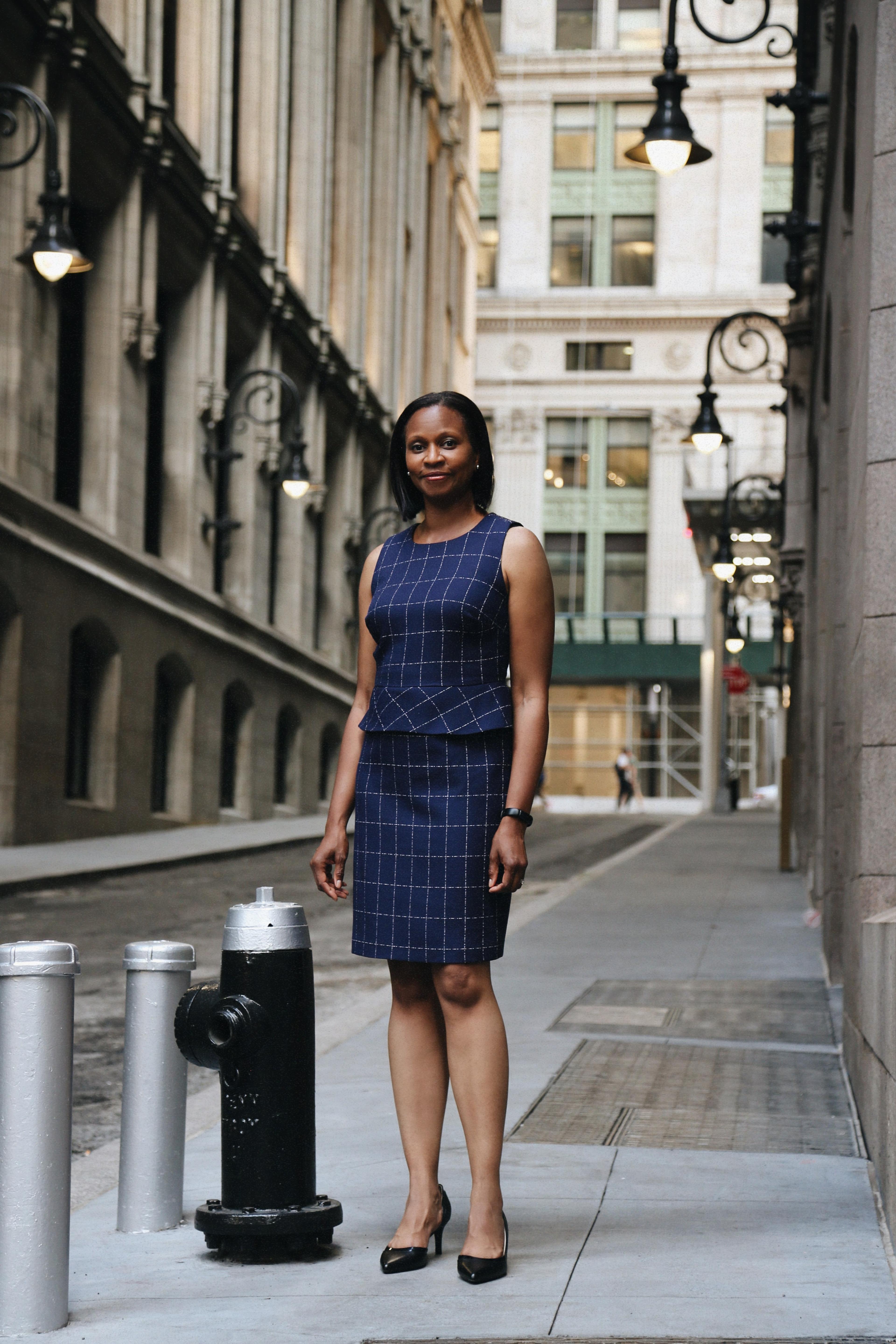
By Eva Sergeeva for Commonplace
Housing at reasonable rents is obviously great and badly needed, but how can the impact be measured? Do you utilize any metrics to measure your impact?
We haven't established any solid metrics yet, but there are certain things that we try to do to help out residents living in our communities. Our approach is basically to say that yes, we have to be paid as a landlord to make the investment work, but if we consider other circumstances that put pressure on our residents and explore solutions to help them, we can create a win-win for ourselves and our residents.
For example, in one of our larger deals, we had the resources – again, because of the benefits of scale – to give out back to school supplies for kids, or host small events like Turkey for Thanksgiving. But even at our smaller scale projects, I am happy to say that we're working with Esusu, which provides a variety of services to help both residents and owners of apartment buildings. One thing they do is report on-time rent payments to the credit bureaus to help residents improve their credit scores. That’s obviously great for residents, but it’s also great for us because it incentivizes residents to pay on time. Another great feature is that when renters are unable to pay on time, Esusu can forward the owed rent to the landlord as an advance payment, while setting up a payment plan with residents on the back end.
All of those things help with our residents’ financial health and can lead to lower interest payments or even the ability to buy a house. We really love seeing that because it’s an important step toward building a strong foundation for their future and it also frees up space for others to move in and benefit from our community and housing.
Much has been said and written about the difficulties Black and Brown developers face in accessing institutional capital, despite promises and headlines declaring billions in support for developers of color. Can you share your own understanding of and perspective on this issue?
Personally, I haven't utilized institutional capital yet. We did consider it for our last deal, but it was a smaller deal, so it didn't really fall within most groups’ scope.
I would still say that it is definitely not easy; it's already challenging to access capital, but as a person of color, especially if you're not in those circles or you haven't been in those circles before, it can take a long time to build those relationships, as it does for really any type of relationship. Those introductions, calls, and touch points have to happen as soon as it makes sense, so that you can start building the trust you need to make those conversations easier. Otherwise, you’ll reach a point where you're ready to scale, but your capital access will hold you back, even though you know you’re capable of taking on larger deals.
And when it comes to those headlines, there have certainly been instances where developers of color have been able to access that capital. However, it seems like it mostly goes to groups that have been around a lot longer and does not really extend to people who may be newer in the space. It's not like the floodgates have opened and now everything is accessible.
"There are significant constraints still, so, sure, you can point to a few groups that have been able to access that capital, but it’s definitely not the majority and not much has changed. That becomes especially clear when you compare developers of color to non-minority developers at similar stages of their company’s growth and development."
What legacy do you hope to leave?
In the end, I want to have an impact not only by passing on generational wealth to my investors and, of course, to my family, but also by creating environments where residents feel safe and comfortable, where they can raise a family, and where they can potentially save enough to buy a house, if that's their goal. In that way, I hope that my work supports an ecosystem that envisions apartment buildings as part of a bigger community that supports its members and helps them navigate life’s many challenges. And I would love to continue working with people who align with that vision and are interested in working alongside us to achieve it.
Besides that, I also want to share my knowledge and be a resource for people who want to get started in this space. My experiences allow me to see and understand the path that people are on and I really just get so much satisfaction being able to advise them.
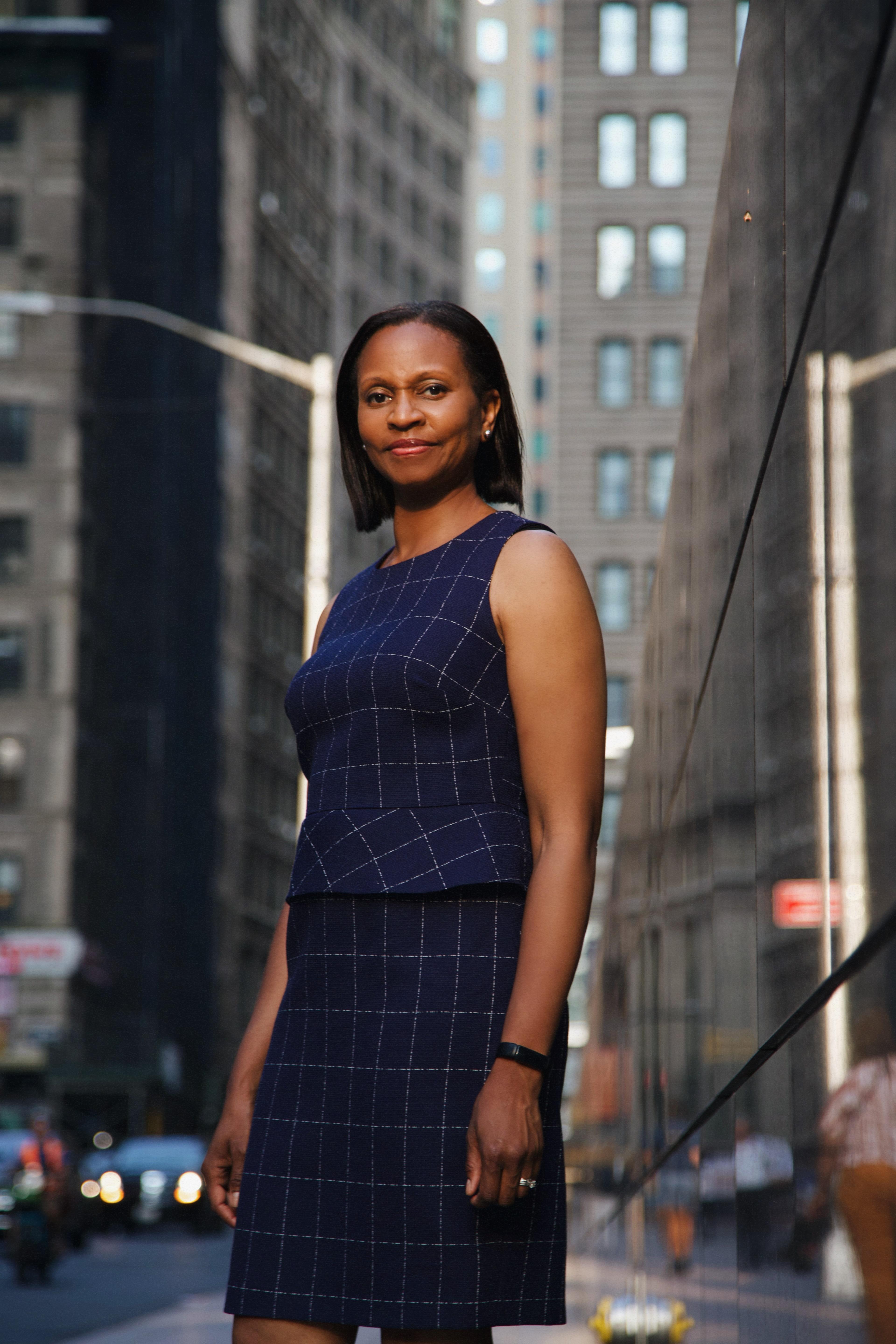
By Eva Sergeeva for Commonplace
Who has inspired you over the course of your career? Who has helped you along the way?
I have to say there are just so many people that have been supportive. Obviously, my parents, my sister, and my husband, but also my teachers and my coworkers at the audit firm and at American Express who helped to support my career development. I appreciate all of them and I was so fortunate to have them help me move through different phases of life and through different corporate spaces, which I think was vital in giving me a strong background and foundation for success.
And, of course, all the mentors I've met along the way in real estate have been so impactful in shaping my life, including all my colleagues, my peers and instructors at Project REAP, members and supporters of the Council of Urban Real Estate, my coach at REIA and the multifamily investing group; even just the people who reach out to me for advice because they challenge me to think differently and keep me grounded.
As you reflect on your career and company, are there any words of wisdom you could share for those looking to follow in your footsteps?
One thing I would say is that you have to be present. Try to put yourself in the room, even though you feel like you may not belong, because it’s important just to show up and be there. And while you’re there, be bold and don’t be afraid to speak up.
I’ll also say that it’s important to take risks – but I don’t mean be reckless! We’re in a difficult economic environment and we’re all trying to de-risk, so I don’t want to send the wrong message. It’s really more about having the confidence to take calculated risks, make bold choices, and move forward because you know that it’s right and trust that you’ve done your homework.

Sonya Rocvil
Bedrock Real Estate Investors
